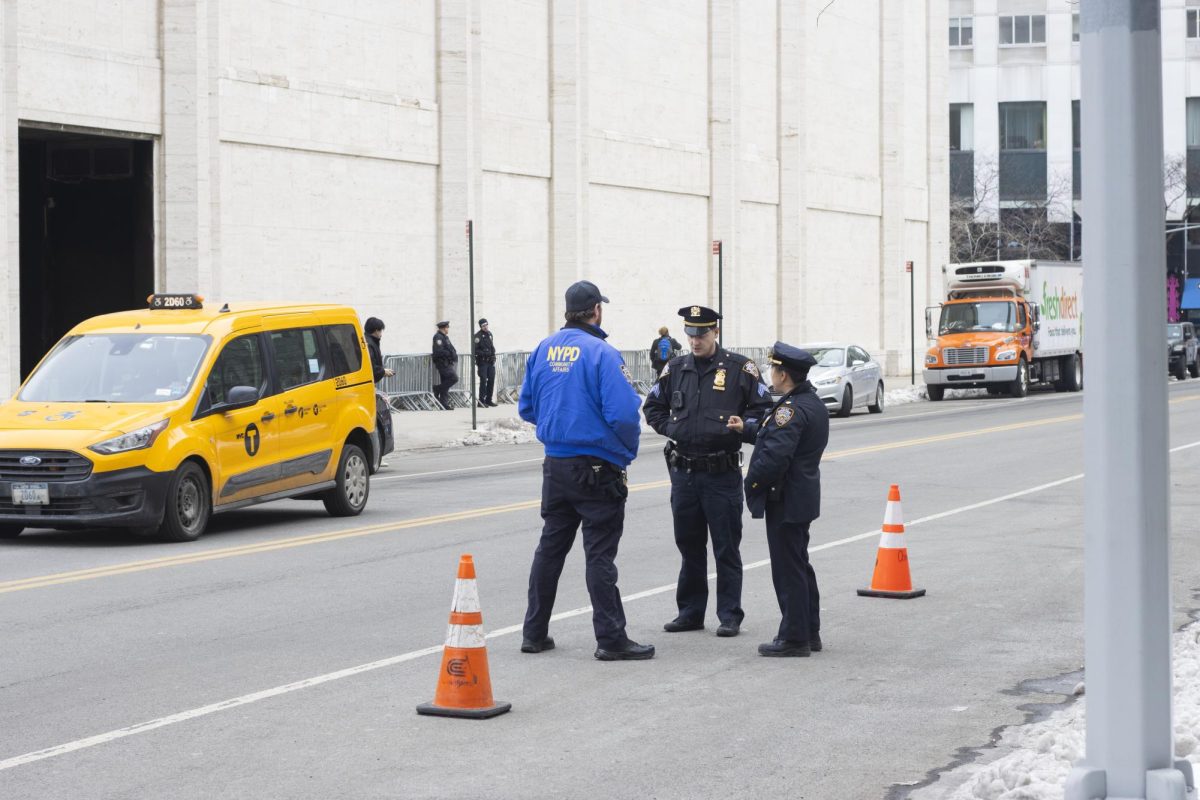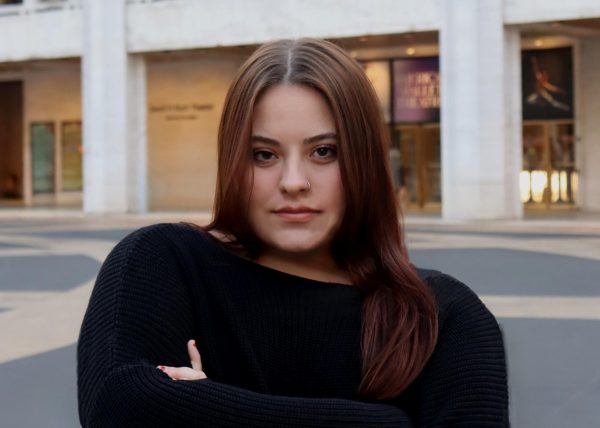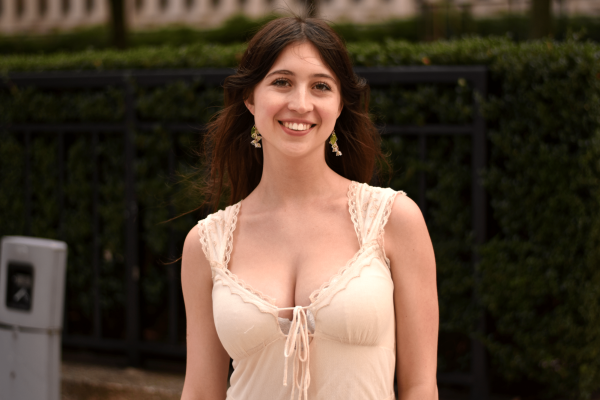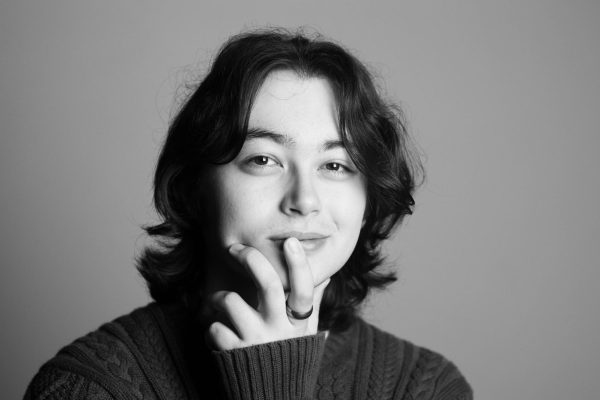Four individuals disrupted a Feb. 11 Fordham Law School event hosted by Jewish Law Student Association in protest of controversial Columbia University professor Shai Davidai’s alleged harassment of pro-Palestinian students.
The event was hosted by Jewish Law Student Association (JSLA) as a part of their new “Lunch and Learn” series.
At various times throughout the event, each protestor stood up and stated “harassers off our campus,” among other remarks that opposed Davidai’s presence on campus. Davidai encouraged attendees to record the protestors and his responses to them.
Davidai is a professor of business at Columbia who emerged as an outspoken pro-Israel activist during contentious on-campus protests against Israeli military actions in Palestine during the 2023-2024 semesters. He was suspended from Columbia’s campus pending an investigation into allegations that he harassed and threatened students and faculty. The ongoing, 14-month university investigation came alongside a petition signed by over 10,000 Columbia students calling for Davidai to be fired. Another online petition calling for his reinstatement garnered over 40,000 signatures.
Public Safety officials were stationed inside the event and around the law school checking Fordham IDs and searching large bags.
Davidai posted videos of the protestors at the Fordham event to his Instagram account, one of which had the caption, “Unfortunately, some people are too indoctrinated to even have a conversation.”
The small Fordham Law School (LAW) room was at maximum capacity with around 50 attendees. Public Safety officials cycled in people who were waiting in line as chairs became vacant.
Public Safety officials were stationed inside the event and around the law school checking Fordham IDs and searching large bags. Administration members were stationed inside the room to “ensure there are no disruptions,” according to an email sent from JLSA to attendees of the event.
Public Safety attended the event to ensure the safety of people attending the event, according to Assistant Vice President for Public Safety Robert Dineen.
“Public Safety is there primarily to ensure the safety of everyone attending the event. We don’t protect any particular point of view, but instead ensure that everyone’s right to free speech is protected within the limits of the law and Fordham’s code of conduct. Neither were violated at the event,” Dineen wrote in an email.
Prior to the event, several student activist groups on campus took to social media to flag their disapproval of Davidai, claiming that his actions went against Fordham’s code of conduct.
Eli Fisher, LAW ’26 and president of JLSA wrote that JLSA invited Davidai to learn about his experiences “dealing with campus antisemitism at Columbia.”
“We remain worried about the physical safety of our group members,” Fisher wrote. “Just like last year during finals, we have Jewish students who feel unsafe and plan on staying home that day. Therefore, we have had numerous meetings with the faculty and public safety to ensure the safety of our students and faculty, and the integrity of our event, in case of protest.”
Prior to the event, several student activist groups on campus took to social media to flag their disapproval of Davidai, claiming that his actions went against Fordham’s code of conduct. This included Fordham Students for Justice in Palestine, who launched an online petition against the event.
Some of these activist groups chose to remain anonymous because of allegations that Davidai targeted and doxxed students. Among these groups was Fordham’s chapter of Jewish Voice for Peace (JVP).
“It’s because of his history of doxxing and threatening and harassing students, not just students, but faculty and administration as well,” Fordham’s JVP chapter founder said. “At least what we’ve seen, it tends to be towards women of color and Arab women, Muslim women. For us, it’s not about free speech at all, it’s just about that history.”
“I think it sets a precedent of Fordham not caring about student safety and giving people a free pass.” Fordham’s JVP chapter founder
The JVP chapter founder expressed concern over what having a speaker with Davidai’s reputation could mean for future Fordham events.
“I think it sets a precedent of Fordham not caring about student safety and giving people a free pass,” the Fordham JVP chapter founder said. “Why are we rewarding that behavior and why are we bringing on someone who has a history of harassing and threatening students? It sets a precedent of ‘anyone is free to come no matter what their behavior has been.’”
Fisher rejected the claim that Davidai is a threat to students. He characterized students who have accused Davidai of harassment as disruptive.
“The Columbia students he allegedly harassed are the same students that burn American flags, filled University toilets with concrete, chant slogans like ‘globalize the intifada’ or ‘death to Israel,’ and are supported by the Supreme Leader of Iran,” Fisher wrote.
Davidai criticized the Gaza Solidarity Encampment protest launched by Columbia students last year as antisemitic.
“It was the most inclusive encampment in the world, except for two people: Israelis and Jews who refused to renounce their identity. Everyone else was welcome,” Davidai said.
He delivered a 22-minute monologue defending his actions at Columbia and condemning Columbia’s administration for “allowing the hate to go unchecked.”
Davidai recounted the events leading to his suspension from campus. He said he was at Columbia with a group of Jewish students for a memorial for the Oct. 7 Hamas-led attack on Israel when they encountered Columbia Students for Justice in Palestine holding an unauthorized protest.
“So I turned my camera at the administration, namely at the Chief Operating Officer of Columbia University Cas Holloway, at the head of Public Safety, Bobby Lau. I documented them. I documented them telling Jewish students that are crying that they can’t do anything … That video, I put those videos online, went viral, two million people saw them. That night, I get a phone call from my lawyers that I’m suspended from campus,” Davidai said.
“They also know that if they publish and try to say that I’ve done something wrong, I will sue them because the facts are the facts and they will lose in court.” Shai Davidai
These videos feature Davidai following Holloway around and repeatedly asking him questions. In the days surrounding this event, Davidai accused several students and professors online of supporting terrorism and had multiple altercations with administrators, according to the New York Times. They cited a statement released by Columbia after Davidai was barred from campus, saying he “repeatedly harassed and intimidated university employees in violation of university policy.”
Davidai alleged that the investigation has not yet been resolved due to a lack of findings, and said he would sue Columbia if the investigation did not conclude in his favor as he “never harassed any student.”
“But they also know that if they publish and try to say that I’ve done something wrong, I will sue them because the facts are the facts and they will lose in court,” Davidai said.
He also said Columbia must vocally condemn the events of Oct. 7 and remove pro-Palestinian student organizations, which he claims promote hatred and antisemitism.
“Just like if you had an organization in support of the KKK, you would not let them be on campus,” Davidai said.
Davidai went on to critique higher academia as a whole and said universities have refused to adopt the International Holocaust Remembrance Alliance definition of antisemitism in order to avoid accountability.
“The moment we stopped making truth the number one priority of universities is the moment universities started a process of killing themselves,” Davidai said. “They don’t adopt it because once they adopt it, they have to enforce it. And that’s accountability, and that’s what they don’t want. If you don’t have a definition, you can’t be taken to court.”
The event lasted just over an hour; Davidai spoke for the first half and then opened the floor for questions.




